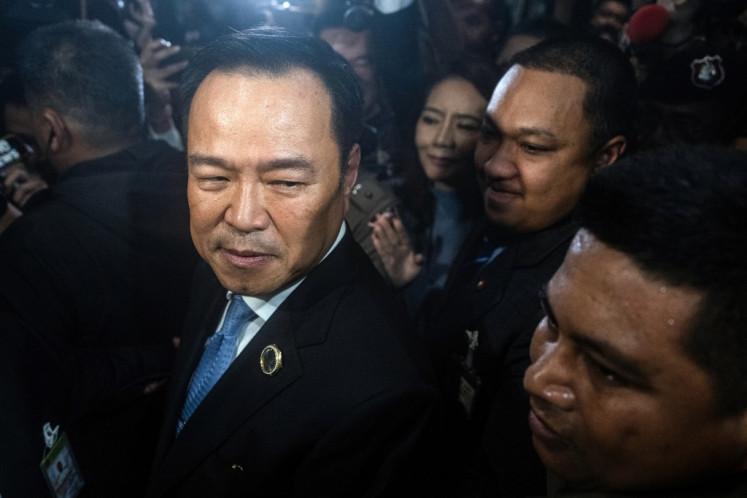Popular Reads
Top Results
Can't find what you're looking for?
View all search resultsPopular Reads
Top Results
Can't find what you're looking for?
View all search resultsGovt told to ratify Nagoya Protocol to save biodiversity
Environmental groups have called on the government to ratify an international treaty that allows the country to reap the benefits of its own genetic resources
Change text size
Gift Premium Articles
to Anyone
E
nvironmental groups have called on the government to ratify an international treaty that allows the country to reap the benefits of its own genetic resources.
The treaty, the Nagoya Protocol on Access to Genetic Resources and the Fair and Equitable Sharing of Benefits Arising from the Utilization (Nagoya Protocol), defined how countries access genetic resources and share the benefits of the resources with the country of origin.
Indonesia acceded the Nagoya Protocol on May 11, 2011, but the government is yet to ratify it. The Nagoya Protocol aims to implement the objectives laid out by the United Nations (UN) Convention on Biological Diversity (CBD).
The CBD has been supported by 193 nations.
The environmental groups said that the treaty was good for Indonesia, a country rich in biodiversity.
“It is of upmost importance that we immediately ratify the Nagoya Protocol because it will give us an umbrella policy to help save our biodiversity,” said Puji Sumedi, the agro-ecosystem program officer at Yayasan KEHATI,
on Monday.
In Indonesia, the combination of natural hazards and human activities, including illegal logging and forest conversions, has caused severe ecological losses.
The country could face further losses from the theft of genetic resources.
Puji said that it is easy to take genetic resources out of the country.
“We are dealing with many occurrences of genetic resource theft, often under the guise of research,” she said.
For example, foreign researchers may collect samples of genetic resources under the guise of scientific research, when in fact he or she intends to use the resources for other purposes.
With the Nagoya Protocol, countries can protect their biodiversity from such practice. The treaty demands that countries comply with the agreement when obtaining access to genetic resources in other countries.
“We have to regulate the use of genetic resources by acknowledging that the resources belong to particular country of origin. Biodiversity resources can no longer be seen as common property, ” said Puji.
The government and the House are expected to ratify the Nagoya Protocol by the end of 2012.
As part of the deliberation process for the protocol ratification draft bill, members of House Commission VII overseeing energy and mineral resources and the environment have visited a number of local communities who benefit from their natural resources.
In the 11th meeting of the Conference of the Parties to the Convention on Biological Diversity in Hyderabad, India, in October last year, the Indonesian delegation pledged that the country would proceed with ratifying the Nagoya
Protocol.
However, the draft bill on the Nagoya Protocol’s ratification is not among the 70 bills scheduled for deliberation in the 2013 National Legislation Program (Prolegnas).
“This is really disappointing. It shows a lack of commitment from our government to save our biodiversity,” said Riza Damanik of the People’s Coalition for Fisheries Justice (KIARA).










